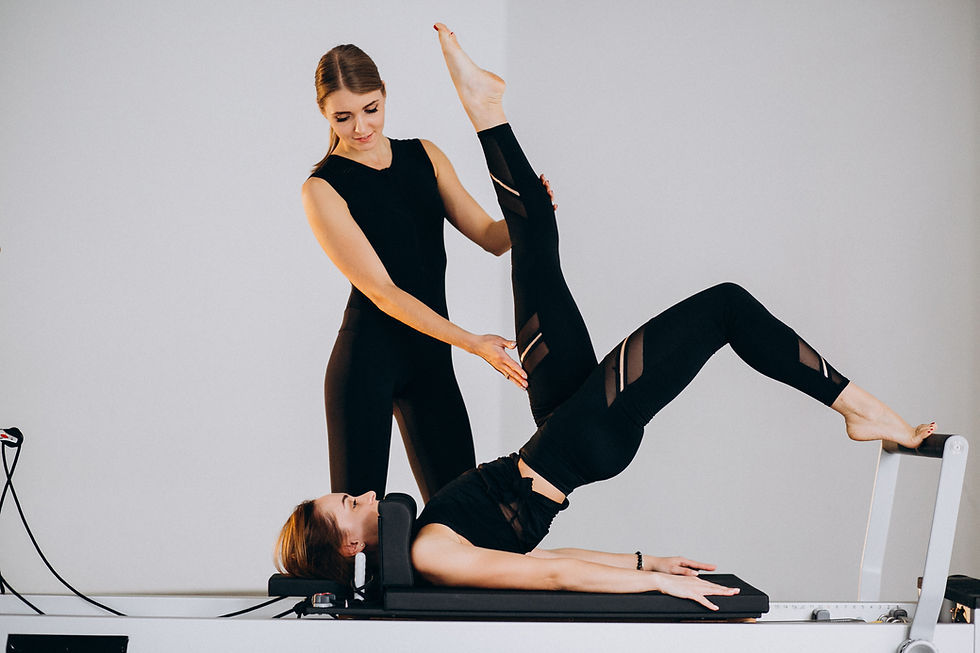Understanding Mental Fatigue in Pilates Practice: Recognising Signs and Adjusting Challenges
- Michael King

- Nov 10, 2023
- 2 min read

As Pilates teachers, we are acutely aware of the symbiotic relationship between mind and body. We often focus on the physical aspects of Pilates, guiding our clients through movements that enhance their strength and flexibility. However, it's crucial to recognise the impact of mental fatigue on physical performance. Mental fatigue is a state of tiredness that can reduce efficiency and the ability to perform mental tasks. While it's less apparent than physical exhaustion, its effects on a Pilates session can be significant.
Firstly, mental fatigue can manifest in a lack of concentration. A client who normally moves with precision and attentiveness may start to display a diminished focus, with their mind seeming to wander away from the task at hand. They might also show a reduced reaction time, taking longer to adjust to new exercises or sequences you introduce.
Another tell-tale sign is a decline in coordination. Pilates requires a high degree of neuromuscular harmony, and mental fatigue can disrupt this. Movements may become less fluid, and clients might struggle with exercises that involve complex patterns or bilateral coordination.
Moreover, mental fatigue can lead to a decrease in motivation. Clients might express less enthusiasm for challenging exercises or seem disinterested in pushing their limits. This is often accompanied by a negative change in mood, with individuals becoming more irritable or downcast during the session.
As Pilates teachers, it’s our responsibility to be attuned to these signs and to create an environment that respects both the mental and physical limits of our clients. When you detect symptoms of mental fatigue, it's wise to steer away from pushing the class with more challenges. Instead, consider incorporating more restorative exercises and focus on breathing techniques that can help re-energise the mind.
Encourage open communication within your class. Make it known that it’s perfectly acceptable for clients to take a step back when they're not mentally up to a challenge. This not only promotes a healthier approach to Pilates but also helps in building a supportive and understanding community within your studio.
In conclusion, recognising and accommodating mental fatigue in your Pilates sessions is essential for the well-being of your clients. It ensures that the practice remains holistic, nurturing both the mind and body, and confirms our role as facilitators of health, rather than mere instructors of technique. Let's honour the interdependence of mental and physical health, and guide our clients towards a balanced and mindful Pilates practice.




Comments